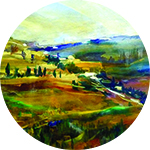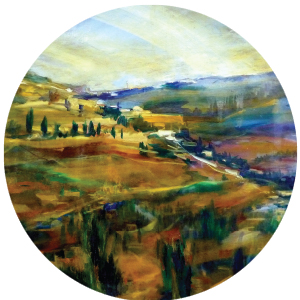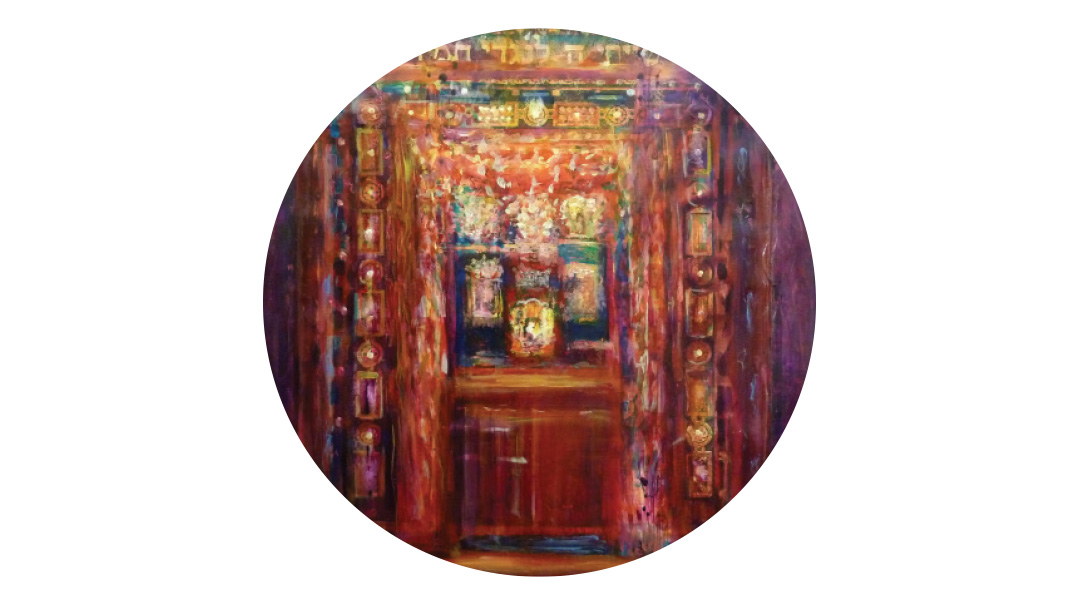The Message of the Matzah

Thousands of years after the Exodus, we're still being redeemed

I
recently saw the most beautiful insight into matzah and its message. In the sefer Bilvavi Mishkan Evneh, the anonymous author discusses the Targum’s chiddush that the matzos were baked by the sun when Bnei Yisrael carried the raw dough on their backs as they escaped Mitzrayim.
He explains that there were three steps that went into making those matzos: mixing the ingredients, forming the dough, and baking them. Bnei Yisrael undertook the first two steps; it was Hashem who performed the third step, causing the matzos to bake in the sun as Bnei Yisrael walked through the desert toward the Yam Suf. Contained in here is the message that Chazal tell us (Avos 2:17), “It’s not for you to finish the work, and it’s also not for you to be absolved of completing it.”
It’s Hashem’s Handiwork
This is theme of so much of our life, and particularly the story of our Geulah from Mitzrayim. We do our hishtadlus, but it’s Hashem Who brings the results to fruition.
The pesukim describe Bnei Yisrael’s cries to Hashem: “And they called to Hashem, and their cries ascended, and He heard, and He knew.” (Shemos 22:25) It was these cries that engendered the Geulah. We need to develop emunah that Hashem will bring about redemption, but at the same time, He wants to see that we try, so we must do our hishtadlus of calling out to Him. In the same vein, Hashem would split the sea, but first Nachshon ben Aminadav had to jump in before the miracle could take place.
Embedded in our acknowledgment of Hashem’s majesty is our faith that He moves things mikoach lapoel, from potential to the actual. That ability is what Hashem displayed to the world through His actions during Yetzias Mitzrayim.
The author of Bilvavi Mishkan Evneh offers another meaning to the word “matzah” — mitz, juice. The process of squeezing the liquid out of a fruit is another display of mikoach lapoel. On Pesach, we were extracted from Mitzrayim, “a nation from within another nation” (Devarim 4:34).
The Light of Geulah
One of my most cherished and often-sung refrains is this one (originally sung by Avraham Fried): “See it in the mountain’s echo, in the ocean’s roar, feel it in the rolling clouds above. Even though it’s all been said 10,000 times before, we know Hashem’s the world, Hashem we love.”
Yetzias Mitzrayim catapulted the Jewish People to a place where they could recognize so clearly, “Ani Hashem, Ani Hu, v’lo acher.” Followed soon after, at the piedmont of Sinai, Bnei Yisrael proudly declared, “Naaseh v’nishma, we will do and we will listen.”
Rashi cites the Mechilta in Yisro in describing how great an event the Exodus was: “The Land of Egypt was completely closed; no slave had ever escaped.” The word “tzar — narrow” is contained within the word Mitzrayim; it was a country tight and unescapable. It represents a place in which one is trapped. And it was from that place that Hashem said on the night of the Tenth Plague (Shemos 11:4), “Ani yotzei mitoch Mitzrayim — I will emerge [again in the word yotzei we hear an echo of the word matzah] from Mitzrayim from that dark, tight place.” As it says in Yeshayah (58:8) “Az yibaka kashachar orecha — Then Your light will break through as dawn.” Your light will dispel the darkness. A light will consume all evil and revealed the most Absolute of all existence — ani Hashem, that there is a G-d!
We Would Still be There
In his essay on Purim in the sefer Pachad Yitzchok on Purim, Rav Yitzchok Hutner ztz”l explains why the mitzvah of constantly reiterating the miracles of Mitzrayim (in Shema, during Kiddush) comes to an exultant fore on Pesach. The world has been devoid for so long of a revelation of the likes of Yetzias Mitzrayim; it’s been thousands of years, but our people still has a collective faith that Hashem took our fathers out of Egypt. Recollecting those miracles strengthens our faith that one day, there will be a repeat performance.
It’s on Pesach, more than on any other night of the year, that it behooves us to remember, “That we, our children, and our children’s children would still be slaves to Pharaoh in Mitzrayim” (Haggadah shel Pesach) had that redemption, that revelation of light, never occurred. It’s on this night that we recall not only that we were taken out of Egypt, but that had we not been, we would still be there, unable to freely serve Hashem.
On a recent morning after penning these words, my heart was bursting with thanks. My morning had been underway way before the slumbering sun rose. I’d been up tending to my very sick child. (Hopefully, as I write this, he is on his way to a refuah from what seems to be a nasty virus.) His underlying health condition entitles him to nursing care on a regular basis, so when his nurse finally came at 8:15 a.m., I’d been “Ima Nurse” for hours. My bed beckoned my weary bones.
But at 8:40 a.m., I wasn’t in bed. I was acting as davening proctor for the 11th grade TAG students I’m blessed to teach. There’s no need to “police” them — they amaze me with their palpable dveikus in tefillah, and I’m able to daven alongside them. The awareness of my ability to rise from that tight place of desperation and exhaustion and serve Hashem spurred a smile. My decision to follow Hashem’s word, to present myself b’tzniyus, to hold back my nasty words, to make my eating holy by reciting a brachah — all these privileges stem from our redemption from the straits of Mitzrayim.
Leil HaSeder is the most joyous night of the Jewish year, because it’s often that from the most painful moments that the greatest clarity in Him emerges. Bilvavi Mishkan Evneh writes, “This faith that there is but ‘Matzui Echad,’ one True and Absolute Existence, this was felt at the Geulah from Mitzrayim and lasted for just a brief piece of time, a transient miracle, that will resume bimheirah b’yameinu.”
With this in mind, throughout this long and bitter galus, we’re continuously exiting Mitzrayim, we’re continuously reaffirming that Hashem is the One in charge, as we saw so clearly from the story of our escape from Egypt.
Halevai we’ll be zocheh to see an even greater event than Yetzias Mitzrayim — our final Geulah!
Rebbetzin Aviva Feiner is the rebbetzin of Far Rockaway’s Congregation Kneseth Israel (The White Shul) as well as a mechaneches in TAG and a visiting lecturer at Stern College.
(Originally featured in Family First, Issue 837)
Oops! We could not locate your form.







